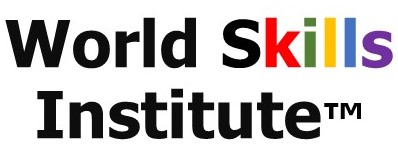
EQMP™ Emotional Intelligence Management Professional™ is a professional designation that highlights an individual’s expertise in understanding and managing emotional intelligence (EQ) within organizational settings. It signifies that the holder has a deep understanding of EQ principles and their application in various professional contexts.
Key Components of EQMP™ Emotional Intelligence Management Professional™:
- Emotional Intelligence Theory: A solid grasp of the foundational concepts and research related to emotional intelligence.
- EQ Assessment and Development: Proficiency in administering and interpreting various EQ assessment tools, as well as designing and implementing EQ development programs.
- Organizational EQ: Understanding how emotional intelligence can be integrated into organizational culture and practices to enhance performance and well-being.
- Leadership and Team Development: Applying EQ principles to develop effective leaders and teams, fostering a positive and productive work environment.
- Conflict Resolution and Negotiation: Using emotional intelligence to address conflicts effectively and negotiate favorable outcomes.
- Coaching and Mentoring: Providing guidance and support to individuals and teams based on EQ principles.
Benefits of Becoming an EQMP™ Emotional Intelligence Management Professional™:
- Enhanced Career Prospects: EQMPs are in very high and top demand in organizations seeking to improve their emotional culture and leadership effectiveness.
- Specialized Knowledge: A deep understanding of emotional intelligence can provide a competitive advantage in the job market.
- Professional Network: Connecting with other EQMPs can create valuable opportunities for collaboration and learning.
- Contribution to Organizational Success: EQMPs can play a vital role in helping organizations achieve their goals by fostering a positive and productive work environment.
EQMP™ Emotional Intelligence Management Professional™ certification and training program consists of:
MODULE 1: CORE
- My Top & Indispensable EQMP™ & Soft Skills Scorecard
- Managing Self
- Managing Priorities
- Managing Stress, Failure, Disappointment and Rejection
- Managing Projects and Programs
- Managing People
- Managing Organizations
- Project Management
- Organization, Planning, and Scheduling
- Cost Estimating, Budgeting, Performance Measurement Baseline (PMB) & Control Accounts
- Earned Value Management (EVM) and Project Control
- Risk Management & Control
- Quality Management & Control
- Fraud Prevention & Control,
- Change Management
- Contract Management, Claims and Disputes
MODULE 2: ADVANCED
EQMP™ Emotional Intelligence Management Professional™ Advanced Topics
MODULE 3: APPLIED
Develop ‘My EQMP Strategy & Execution Play Book™’
DURATION: 5 DAYS
PRICE: $4,999 per participant
TRADEMARKS:
EQMP™ Emotional Intelligence Management Professional™ is a trademark of the World Skills Institute in the USA and internationally and is fully protected under International Trademark, Copyright treaties, and Laws among nations
